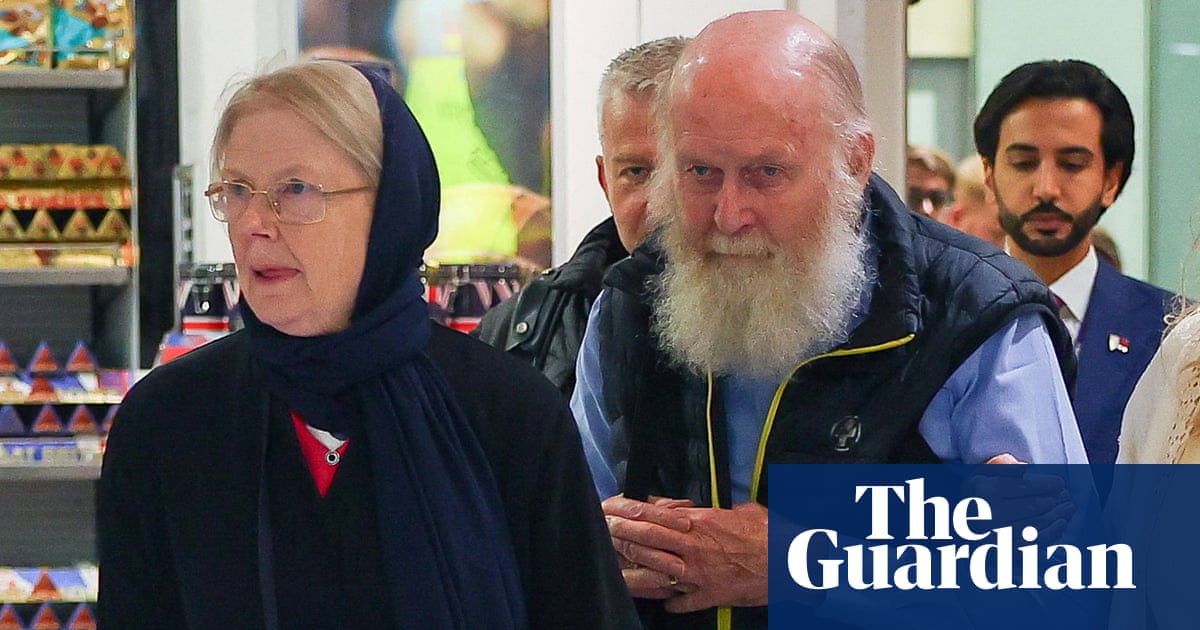Well, British politics has served up another week of compellingly packaged action. Like Drive to Survive, but for clown cars. Leave it to “no-drama Starmer” to come up with the only thing weirder and more awful than watching the chancellor of the exchequer sob on the frontbench – wheeling her out a mere 22-and-a-half hours later for an unscheduled appearance at a wellbeing centre(!), where Rachel Reeves had to get her happy face on and pose for selfies.
The whole thing gave Keir Starmer the feel of one of those remorseless boyband managers who reacts to one of their young charges having a breakdown by getting them a special injection and shoving them straight back out on stage the next night. I think you can probably do it with a member of Take That or 5ive or whoever, and only run the risk of them turning on you in a documentary decades later. But is it a vibe you want at the heart of the team in charge of the world’s sixth largest economy?
Yes, imply some allies of Reeves, who are now suggesting that because the (debunked) possibility that the chancellor was crying about losing her job clearly spooked bond traders, she has actually emerged in a stronger position from the whole business. Again: really? Having to physically hug your boss to calm the markets doesn’t feel like a textbook power move – but look, like people kept saying last July: the grownups are back in charge.
Anyway, never mind last July. Watching the turbo-fiasco of this week unfold, I kept thinking instead of a speech Starmer made in the Downing Street garden near the end of last August. I want to say it was the first reset of his government … ? But who’s counting. This government’s had more reboots than Batman. And, like that particular character’s screen incarnations, it all just seems to keep getting darker and grittier every time.
That August speech featured an extremely extended analogy between the country and a house that had some kind of rot, but could be fixed by being completely made over, if you really had a go at overhauling the foundations. Rereading it in the wake of Labour’s full-spectrum Commons chaos over the universal credit and personal independence payment bill reminded me of one of those movie scenes where an idealistic young newcomer is telling a guy in the town about the house they’ve just bought. It’s a real fixer-upper, they’re going to do it all themselves, it was quite the bargain, but it could be beautiful – and the guy just cuts them off as it dawns on him. “Oh right,” he says. “The murder house.”
No one is saying the House of Commons was built on an Indian burial ground … but this week’s deranged farce certainly seemed to release the spirits of the Brexit years back into its cursed chamber. Much as Theresa May’s 437 Brexit votes never actually achieved a Brexit, the universal credit and personal independence payment bill now has nothing about personal independence payments in it. If that doesn’t take you back down memory lane, meanwhile, other throwbacks are available. Shortly after 9pm last night, the Coventry South MP, Zarah Sultana, announced she was going to “co-lead the founding” (what?) of a new party with Jeremy Corbyn. And shortly after that, sources close to Corbyn let it be known he was furious and bewildered this plan had been launched without consultation. According to what one ally told the FT, “Zarah has really overplayed her hand”, which is believed to include the three of clubs, Mr Bun the Baker, and an expired student railcard. Out loud, Corbyn said things like “Zarah will help us” and “discussions are ongoing”. Let’s pray for peace – if not in the wider world, then certainly in this new and fractured party.
Then again, which part of our politics isn’t fracturing before our very eyes? It is quite possible none of us will be able to escape the murder house’s past. In some ways, the most bizarre thing about the welfare bill fallout was the cabinet ministers attempting to clean it up with the same strange, dead language that a growing number of people feel characterises most contemporary politicians bar Nigel Farage. No sooner had the horror show unfolded than cabinet office minister Pat McFadden was explaining that though there would be a cost, Labour would still stick to its manifesto promises on tax. Is this the gibberish about not raising taxes on “working people”? It would seem so.
Yet even back at manifesto stage, this already felt like a deliberately obscure way of talking that just comes across as lying. Newsflash, Pat: you already have raised taxes on working people. People who run small businesses are working people. And the reason they haven’t employed more working people, and in some cases have let go the working people they used to employ, is because you raised taxes on them. By chance I heard McFadden’s interview right after one of my children told me they’d seen Reeves crying on loads of YouTube videos. He’s 12, so I think that’s what they call cut-through – and underscores the feeling that you just can’t control politics in the knackered old ways any more.
As for what we’re feeling – all those wonderful working people out there in the dark – the answer is surely: like we’ve been here before, and that the dysfunction is more wearying for its familiarity. Starmer came to power promising his government would fix broken Britain. One year on, it would be a start if he could even fix his broken government.
-
Marina Hyde is a Guardian columnist

 2 months ago
72
2 months ago
72

















































